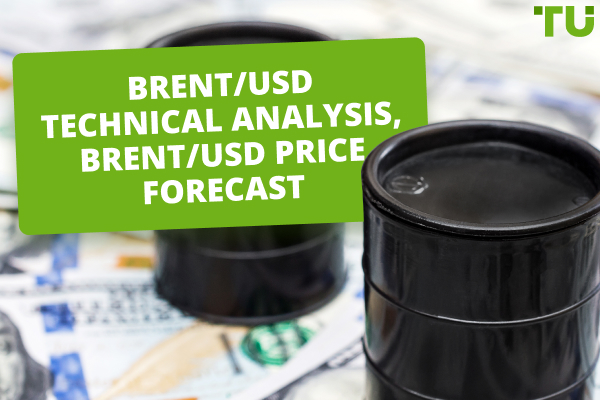How Many Traders Are Profitable?
Majority of traders have to lose money in their first year of trading only. Up to 64%-97% of traders fail due to volatility in the market.
The staggering statistic that 64% to 97% of traders end up losing money underscores the daunting challenges that face individuals in the financial markets. While the exact percentage may vary across studies, a prevailing trend of failure remains evident. Several key factors contribute to this high failure rate, including inadequate risk management, emotional decision-making, lack of a well-defined trading strategy, and overtrading.
Do you want to start trading Forex? Open an account on RoboForex!How many traders fail?
The statistics on trader losses can vary significantly depending on the specific market and trading approach. For instance, long-term stock position trading tends to carry lower risks compared to highly leveraged instruments like CFDs or cryptocurrencies, where volatility can lead to more pronounced losses, highlighting the importance of tailoring one's trading strategy to the inherent risk profile of the chosen market.
A survey of day traders in Brazil's equities futures market, the world's third-largest, discovered that 97% of those who traded for more than 300 days lost money. According to the study, "only 1.1% gained more than the Brazilian minimum wage, and only 0.5% earned more than the initial wage of a bank teller — all with great risk."
Over a 12-month period, eToro discovered that 80% of its consumers lost money.
A study of Taiwanese day traders from 1992 to 2006 (during the dotcom era) found that 74% of all day trading activity is attributed to traders with no track record of success, and 97% of day traders lose money net of trading costs on any given day.
Strategies for consistent trading profits
The most validating strategy for consistently trading profits is following the already proven trading strategies and techniques that increase the likelihood of making money. Let's get into some of them here:
Risk management: Always know your risk-taking capacity and get into the platform accordingly. Trading with money more than a trader can afford to lose is the primary reason why they fail to make profits. Analyzing the ability with the available resources to manage or minimize the risk is the key to grow as a trader.
Technical analysis: The study of charts and patterns is known as technical analysis, but it can also involve parts of behavioral economics and risk management. There are various techniques and methods to analyze the trading charts and patterns that can be mastered through books, online courses, and regular practice.
Trend following: Trend following is a simple yet effective trading strategy that seeks to profit from long-term market trends. By identifying and following the trend, traders can capture significant gains while avoiding significant losses during market volatility or uncertainty.
Psychological aspects of profitable trading
Certainly, successful trading goes beyond just financial analysis. Here are some key psychological aspects that impact trading success:
Discipline: Trading requires a disciplined approach to consistently adhere to a well-defined strategy, manage risk effectively, follow a trading plan, and avoid making impulsive decisions that can lead to losses.
Emotional control: Emotions like fear and greed can cloud judgment and result in irrational decisions. Successful traders master emotional control, avoiding impulsive actions and making trading decisions based on thorough analysis rather than emotions.
Mindset adjustments: Maintaining a flexible mindset is crucial because market conditions can change rapidly. Traders should be willing to adapt their strategies in response to evolving market dynamics, and a growth mindset helps them learn from losses and incorporate new information into their approach.
Confidence: Confidence is important, but it should be balanced with a realistic understanding of a strategy's limitations. Traders should have faith in their chosen approach while recognizing that no strategy is foolproof.
Adaptability: Given the unpredictable nature of financial markets, successful traders excel by being adaptable, ready to adjust their strategies as market conditions change, and being open to switching strategies when necessary.
Continuous learning: The financial markets are constantly evolving. Traders who commit to ongoing education and stay informed about market news and trends are better equipped to make informed decisions and adapt to changing market environments.
Mental resilience: Trading can be emotionally challenging, particularly during losing streaks. Mental resilience is crucial for traders to bounce back from losses, maintain focus on their long-term goals, and avoid emotional reactions that can lead to further losses.
Self-awareness: Understanding your strengths and weaknesses as a trader is essential. Developing self-awareness enables you to leverage your strengths effectively and work on improving areas of weakness, ultimately enhancing your overall trading performance.
These psychological aspects, when combined with solid financial analysis and risk management, can contribute significantly to long-term profitability in trading.
The Importance of education and skill development
Trading is a skill, and like any skill, it requires constant honing. Developing your skill, and educating continuously will help traders refine their strategies and improve their execution. The more you trade, the better you become at recognizing patterns and making informed decisions.
Here are some important skills to thrive in the trading field:
Continuous learning: Continuous education is the bedrock of successful trading. Staying up-to-date with market developments, economic indicators, and new trading strategies is vital. Markets evolve, and what worked yesterday may not work tomorrow.
Adaptation to market trends: Being aware of current market trends and news is essential. Traders who can interpret and react to these trends have an edge. Markets can shift swiftly, and those who adapt quickly are more likely to profit.
Psychological preparedness: Education isn't just about numbers; it's also about understanding the psychology of trading. Knowing how emotions can impact decisions and learning strategies to manage them is invaluable.
In summary, education and skill development are the pillars of sustained profitability in trading. A commitment to learning and improving is what sets successful traders apart in the ever-changing world of finance.
Best Forex brokers 2024


FAQs
What percentage of traders are profitable on Nasdaq?
In all the tradings at the broader markets like Nasdaq, a study of 324-day traders found that only 36% made a profit.
What are some beginner-friendly trading strategies for making money?
For beginners, strategies like "Buy and Hold" for long-term investments or "Trend Following" to ride established market trends can be relatively simple and effective.
How does risk management contribute to making money in trading?
Proper risk management, including setting stop-loss orders and managing position sizes, helps protect your capital from substantial losses, preserving your ability to make money in trading.
Is making a consistent income through trading a realistic goal?
Achieving a consistent income through trading is challenging and not guaranteed; it depends on various factors. Many traders experience fluctuations in income, making consistent profits a realistic but difficult goal.
Glossary for novice traders
-
1
Broker
A broker is a legal entity or individual that performs as an intermediary when making trades in the financial markets. Private investors cannot trade without a broker, since only brokers can execute trades on the exchanges.
-
2
Trading
Trading involves the act of buying and selling financial assets like stocks, currencies, or commodities with the intention of profiting from market price fluctuations. Traders employ various strategies, analysis techniques, and risk management practices to make informed decisions and optimize their chances of success in the financial markets.
-
3
Risk Management
Risk management is a risk management model that involves controlling potential losses while maximizing profits. The main risk management tools are stop loss, take profit, calculation of position volume taking into account leverage and pip value.
-
4
Day trader
A day trader is an individual who engages in buying and selling financial assets within the same trading day, seeking to profit from short-term price movements.
-
5
CFD
CFD is a contract between an investor/trader and seller that demonstrates that the trader will need to pay the price difference between the current value of the asset and its value at the time of contract to the seller.
Team that worked on the article
Upendra Goswami is a full-time digital content creator, marketer, and active investor. As a creator, he loves writing about online trading, blockchain, cryptocurrency, and stock trading.
Dr. BJ Johnson is a PhD in English Language and an editor with over 15 years of experience. He earned his degree in English Language in the U.S and the UK. In 2020, Dr. Johnson joined the Traders Union team. Since then, he has created over 100 exclusive articles and edited over 300 articles of other authors.
Mirjan Hipolito is a journalist and news editor at Traders Union. She is an expert crypto writer with five years of experience in the financial markets. Her specialties are daily market news, price predictions, and Initial Coin Offerings (ICO).









